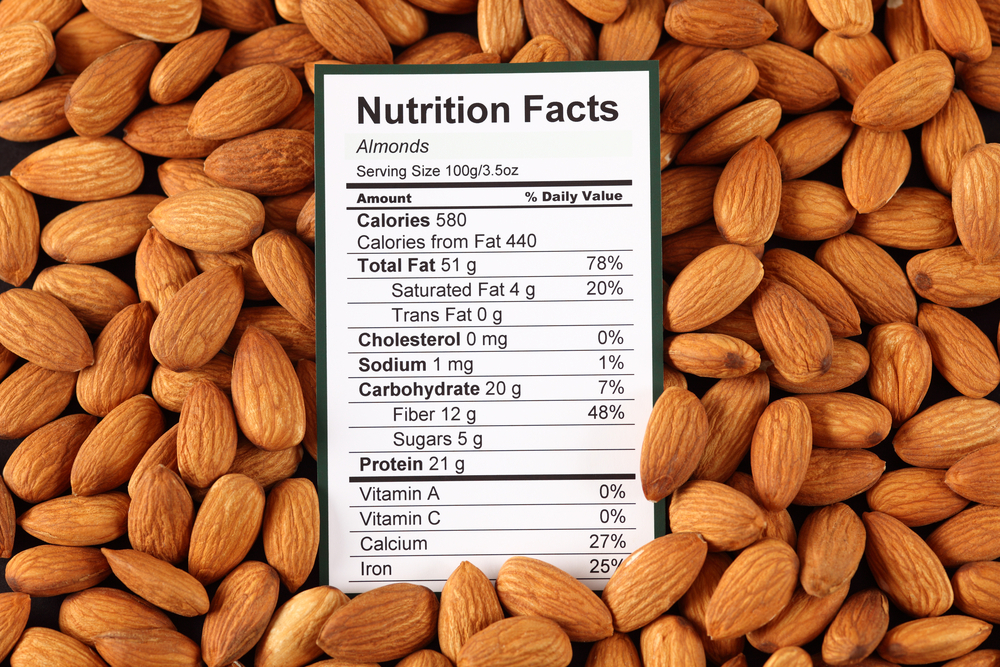The Nutritional Goldmine: 10 Facts About Almonds

In recent years, almonds have seen a dramatic surge in popularity, becoming a staple in many kitchens across the globe. Whether enjoyed as a quick snack, blended into smoothies, or used to add a delightful crunch to various dishes, these versatile nuts are celebrated not just for their taste but also for their impressive nutritional profile.
As more people become health-conscious and seek nutrient-dense foods, understanding the benefits that almonds offer is crucial.
This blog post aims to delve into the top ten facts about almonds that highlight their significance in a healthy diet, from heart health to weight management, and their role in sustainable agriculture. Let’s explore why these small but mighty nuts deserve a prominent place in your daily regime.
1. Almonds Are Packed with Nutrients
Almonds are a powerhouse of essential nutrients that provide a remarkable array of health benefits. They are particularly rich in vitamin E, a potent antioxidant that helps protect cells from damage and supports immune function.
Additionally, almonds are an excellent source of magnesium, a mineral crucial for muscle function, nerve health, and maintaining a steady heartbeat.
The high fibre content in almonds not only aids in digestive health but also plays a role in controlling blood sugar levels and supporting weight management. This triad of key nutrients makes almonds an exceptional addition to your diet, contributing to overall wellness and vitality.
2. Heart Health Benefits
Incorporating almonds into your diet can significantly benefit your heart health, primarily by helping to reduce levels of bad cholesterol, known as LDL cholesterol. The monounsaturated fats and antioxidants found in almonds play a crucial role in decreasing LDL levels, which is vital for preventing the build-up of plaque in the arteries and thereby reducing the risk of atherosclerosis.
Numerous studies have supported these claims, demonstrating that regular almond consumption is associated with improved lipid profiles and a lower overall risk of heart disease.
For example, a study published in the journal Circulation found that individuals who included almonds in their diet had a 37% reduction in LDL cholesterol and experienced better cardiovascular health.
This compelling evidence underscores the importance of almonds as a heart-healthy snack that can contribute to long-term cardiovascular well-being.
3. Excellent Source of Antioxidants
Antioxidants are vital compounds that play a key role in neutralising harmful free radicals in the body, thereby preventing oxidative stress, which is a major contributor to ageing and chronic diseases.
Almonds are an excellent source of antioxidants, particularly in the brown skin layer of the nut. These antioxidants include powerful flavonoids and phenolic acids that work synergistically to protect cells from damage by scavenging and neutralising free radicals.
By incorporating almonds into your diet, you can benefit from these protective properties, which help to maintain cellular integrity, reduce inflammation, and potentially lower the risk of chronic ailments such as heart disease and cancer.
The high antioxidant content of almonds thus makes them a valuable component of a health-promoting diet, supporting overall well-being and longevity.
4. Aid in Blood Sugar Control
Almonds have a significant impact on blood sugar levels, making them a beneficial addition to the diet of individuals with diabetes or prediabetes. The high fibre content in almonds helps slow the absorption of sugar into the bloodstream, leading to more stable blood sugar levels and preventing spikes that can be harmful over time.
Furthermore, almonds have a low glycemic index, which means they cause a slower rise in blood sugar compared to foods with higher glycemic indexes. This is particularly advantageous for individuals managing diabetes, as it aids in maintaining more consistent glucose levels.
Additionally, the presence of magnesium in almonds plays a role in improving insulin sensitivity, which is crucial for blood sugar regulation. Studies have shown that consuming almonds regularly can help enhance glycemic control, making these nuts an excellent dietary choice for supporting metabolic health and reducing the risk of diabetes-related complications.
5. Weight Management
Almonds play a pivotal role in weight management, serving as an ideal snack for those looking to maintain or lose weight. One of the key reasons almonds are effective for weight control is their ability to enhance satiety.
Due to their high protein, healthy fat, and fibre content, almonds help you feel full for longer periods, reducing the likelihood of overeating and curbing unhealthy cravings.
Moreover, despite being energy-dense, almonds have a relatively low-calorie content when considering their nutrient richness. Studies have found that incorporating almonds into the diet does not necessarily lead to weight gain; in fact, the increased satiety associated with almond consumption can result in a lower overall caloric intake.
This makes almonds an excellent choice for a nutritious, satisfying snack that supports weight management goals without compromising on essential nutrients.
6. Bone Health
Almonds are particularly valuable for maintaining bone health due to their high magnesium and phosphorus content. Magnesium is essential for converting vitamin D into its active form, which in turn helps the body absorb calcium more effectively, contributing to robust bone structure. Phosphorus, on the other hand, plays a critical role in the formation of bones and teeth.
Together, these minerals help in preventing osteoporosis and maintaining bone density, making almonds a smart choice for those looking to strengthen their skeletal system. Regular consumption of almonds can thus aid in preserving bone mass and reducing the risk of fractures, especially as we age.
Incorporating almonds into your diet is an effective and delicious way to support long-term bone health.
7. Skin and Hair Benefits
Almonds offer a plethora of skin and hair benefits, largely attributed to their high vitamin E content and the versatile use of almond oil in beauty products. Vitamin E is a potent antioxidant that helps protect the skin from oxidative stress and UV damage, promoting a youthful and radiant complexion.
It also aids in skin repair and reduces the appearance of scars and blemishes. When it comes to hair, vitamin E supports scalp health by improving blood circulation and providing essential nutrients, which can lead to stronger, shinier hair.
Almond oil, extracted from almonds, is a popular ingredient in many beauty products due to its nourishing and moisturizing properties. It can be used as a natural emollient for the skin, helping to lock in moisture and soften dry, flaky areas.
Additionally, almond oil is often used as a hair treatment to tame frizz, enhance shine, and treat scalp conditions such as dandruff. Incorporating almonds and almond oil into your skincare and haircare routines can therefore contribute to healthier, more vibrant skin and hair.
8. Versatile Culinary Uses
Almonds’ versatility in the culinary world is truly remarkable, making them an easy addition to a variety of dishes and snacks. Whether used whole, sliced, chopped, or ground into almond flour, their nutty flavor and crunchy texture can elevate both sweet and savory recipes.
Start your day with a nutritious boost by adding sliced almonds to your morning oatmeal or yogurt parfait. For a lunchtime twist, sprinkle chopped almonds over salads for an added crunch or blend them into a delicious almond pesto to pair with your favorite pasta.
Almonds can also be a star ingredient in baking; use almond flour for gluten-free baking or create decadent almond-based desserts like macarons and cookies.
For snacks, try roasting almonds with spices for a savory treat or make your own almond butter to spread on toast. The culinary possibilities are endless, making almonds a versatile and nutritious choice for any meal or snack.
9. Sustainable Crop
Almond farming offers significant environmental benefits and plays a crucial role in supporting sustainable agriculture.
One of the key advantages of almond production is the efficient use of water through advanced irrigation techniques, such as drip irrigation, which minimizes water waste and improves crop yield. This method ensures that water is precisely delivered to the root zone, promoting healthy tree growth while conserving this precious resource.
Additionally, almond orchards act as carbon sinks, sequestering carbon dioxide from the atmosphere and helping to mitigate climate change. The trees also contribute to soil health by promoting biodiversity; cover crops planted between rows of almond trees can enhance soil fertility and structure while providing a habitat for beneficial insects.
Sustainable almond farming practices often include integrated pest management (IPM) strategies that minimize the need for chemical pesticides, further reducing the environmental impact. By implementing these environmentally friendly practices, almond farmers are not only producing a nutritious crop but also fostering a more resilient and sustainable agricultural system.
10. Global Impact
Almond farming holds substantial economic significance in various countries, particularly in regions like California in the United States, Spain, and Australia. These areas are major almond producers, contributing significantly to their respective agricultural economies.
In California alone, almond farming generates billions of dollars in revenue annually and supports a vast network of jobs ranging from farm labor to processing and export services.
The global demand for almonds drives international trade, making the crop a vital export commodity for these countries. Beyond its economic impact, almonds also possess cultural importance and are traditionally used in various culinary practices around the world.
In Mediterranean and Middle Eastern cuisines, almonds are a key ingredient in dishes such as marzipan, baklava, and confections like nougat.
In Indian culture, almonds play a significant role in both everyday and festive recipes, incorporated into sweets, curries, and beverages like almond milk. This blend of economic and cultural significance underscores the global impact of almond farming, highlighting its importance across different societies and economies.
Conclusion
In summary, almonds truly are a nutritional goldmine, offering a plethora of health benefits. Let’s recap the top ten facts we’ve covered: almonds are rich in essential nutrients like vitamin E, magnesium, and healthy fats, making them a powerhouse for heart health, weight management, and overall wellness.
Their high protein content helps build and repair tissues, while the abundance of antioxidants supports the immune system and fights inflammation.
We’ve also explored how almonds can improve digestive health due to their fibre content and how vital minerals like calcium and phosphorus bolster bone strength.
The skin and hair benefits make them a beauty secret worth embracing, and their culinary versatility ensures they can easily be incorporated into any meal or snack.
Furthermore, sustainable almond farming practices benefit the environment, and globally, almonds play a significant role in various cultures and economies.
With these numerous advantages, it’s clear that including almonds in your daily diet can support a balanced, healthy lifestyle. Whether you enjoy them as a snack, add them to your favourite recipes, or use almond oil in your beauty routine, the benefits are undeniable. Make the smart choice and start reaping the rewards of this incredible nut today.




